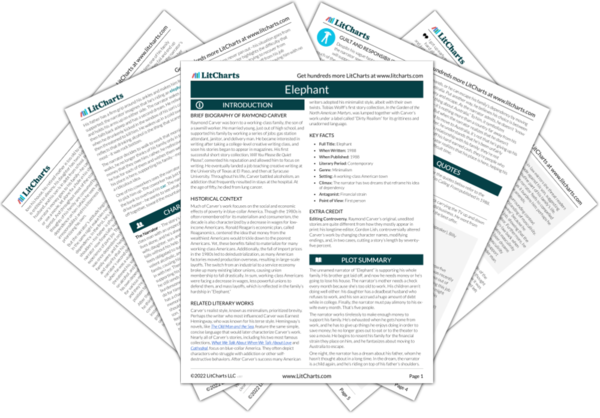To the narrator, Australia is a symbol of freedom, but mostly because it’s so geographically far from his home in the United States. He admits that he doesn’t know the first thing about Australia, and he has no specific fantasies about what he would do there. He doesn’t want to go to Australia to seek a particular life—he sees Australia only as an escape, a way to put the most possible distance between himself and his problems. This kind of escape clearly won’t bring him what he’s looking for—and in fact, the narrator doesn’t “beg[i]n to feel better” until he has realized that he doesn’t actually want to go to Australia at all.
But when the narrator realizes that he doesn’t want to go to Australia, he’s not accepting that he’ll be miserable forever—he’s actually escaping the false binary between drudgery and fleeing, thereby reframing the way he thinks about his life. At the end of the story, he begins to see himself not as a victim of his family’s incompetence and irresponsibility, but rather as a lucky man with a stable life and people who love him. So he escapes from drudgery not by fleeing the country, but by realizing that he is capable and willing to help.
Drudgery vs. Escape ThemeTracker

Drudgery vs. Escape Quotes in Elephant
I got up early every morning and went to work and worked hard all day. When I came home I plopped into the big chair and just sat there. I was so tired it took me a while to unlace my shoes.
Hell, I didn’t want to go to Australia. But once I understood this, once I understood I wouldn’t be going there—or anywhere else, for that matter—I began to feel better.











